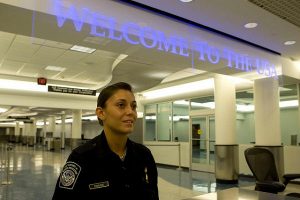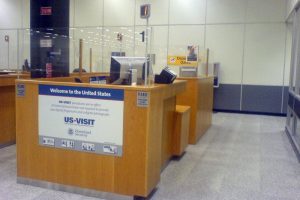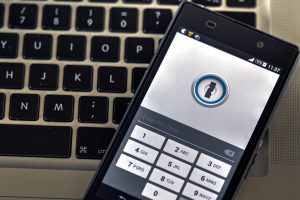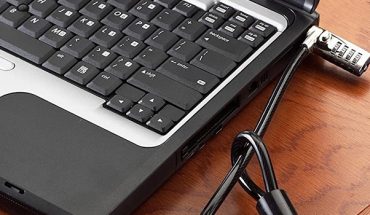Recent changes to—and ongoing implementation of—U.S. Canada border security protocols include more inspections of personal electronic devices like your tablet, laptop or smartphone.
If you are heading to the States, be aware that U.S. Customs and Border Protection agents may ask you to unlock your device or be denied entry.
Top Canadian carriers like Air Canada and WestJet have issued travel advisories to their customers that extra time is needed to clear heightened security activities, and the screening of personal electronic devices such as tablets and laptops means all such devices have to be easily accessible and have cases and covers removed.

About 300,000 people cross the Canada-U.S. border a day; about 5,000 digital device searches are being made a month, a very small percentage overall. USCBP Image.
While the frequency of such searches is increasing, they constitute a very small fraction of the total number of trips Canadians make to the States: about 300,000 people cross the Canada-U.S. border a day; about 5,000 digital device searches are being made a month.
Nevertheless, the new border policies have some people concerned that “digital dragnet border searches”, in which agents demand entry codes for personal devices so they can access information that would usually require a search warrant, will result.
For example, while the new policy directives say Border Patrol agents are only permitted to search information stored “physically” on a traveller’s phone and not data stored “solely” in the cloud, one concern is the number of cloud-based services that regularly sync contents on the server with the client-side phone: emails, social media notifications or file directories on the device can make the cloud content accessible and searchable.
Any information on a device that is accessed will then be available to any number of other U.S. government agencies beyond Customs, and such data can be kept for 75 years or for the duration of any “other enforcement activities that may become related.”
Of course, Canada Border Services Agency (CBSA) officers also have widespread powers to stop and search people; they can examine baggage and other possessions including devices such as laptops and smartphones. Under Canada’s Customs Act, these activities may be conducted without a warrant.
While Canadian law may be unsettled regarding whether a border officer can compel a person to turn over their password so that their electronic device may be searched, CBSA policy states that examinations of personal devices should not be conducted as a matter of routine; such searches may be conducted only if there are grounds or indications that “evidence of contraventions may be found on the digital device or media.”
If your laptop or mobile device is searched, it should be in accordance with this policy and you will likely be asked for your password. If you refuse to provide your password, your device may be held for further inspection.

Everyone arriving at a port of entry to the U.S. is subject to inspection by Customs and Border Protection officers; digital devices may be inspected as well. Image of US border crossing at Shannon Airport. (Creative Commons Image By Dx73 – Own work, CC BY-SA 3.0)
Be it for business or pleasure, it is clear that Canadians will continue to travel to the U.S. For those who take their digital device, and who have no issues or concerns with searches at the border, carry on. The vast majority of travellers cross without disruption or delay.
But if you have concerns about crossing the border (and many are quite reasonable, not illegal), tips and advice are available. For simple connectivity, but without exposing your own phone and personal contents to a border guard, consider a so-called burner phone, a cheap device you can use easily enough, but one that carries no personal data and can be lost or surrendered without risk.
You can also consider wiping your phone of personal data or contact information, just like many business people who face crossing borders with sensitive or proprietary company information. They travel with clean computers or devices, and then only access needed data back home through a VPN or secure cloud platform.
As the B.C. Civil Liberties Association advises: “Take the minimum information necessary and leave the rest at home.”

“Take the minimum information necessary and leave the rest at home.” The B.C. Civil Liberties Association has advice for travellers carrying their digital devices. Image of laptop and phone by Ervins Stauhmanis (Flickr Creative Commons)
-30-
Related:
Christmas Gifts, New Gadgets Can Compromise Your Online Security, Safety




Information and statistical data about the cellphone and smartphone searches conducted at the U.S. – Canada border is being collected by the Canada Border Services Agency, and a report is expected early next year.
https://www.ourcommons.ca/DocumentViewer/en/42-1/ETHI/meeting-69/notice